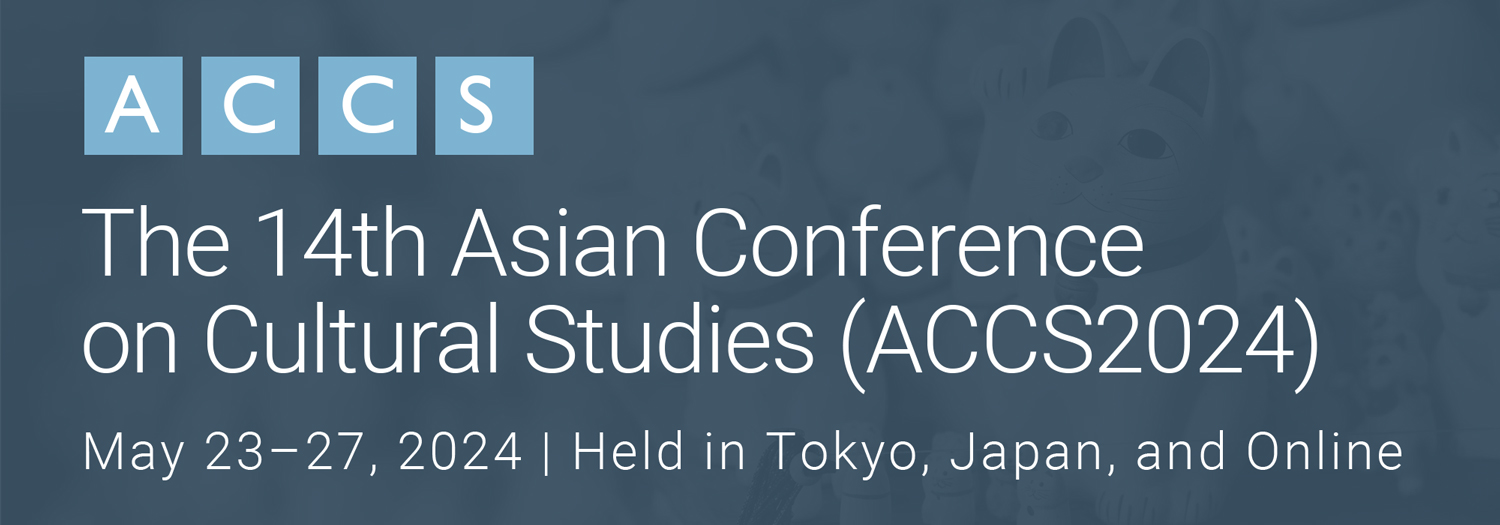Five new Organising Committee members have joined The 12th Asian Conference on Cultural Studies (ACCS2022) and The 12th Asian Conference on Asian Studies (ACAS2022).
Umberto Ansaldo, Curtin University, Australia
Yasue Arimitsu, Doshisha University, Japan
Darlene Machell Espena, Singapore Management University, Singapore
Lorna Piatti-Farnell, Auckland University of Technology, New Zealand
Gerard Goggin, Nanyang Technological University, Singapore
Organising Committees are composed of distinguished academics who are experts in their fields. The Organising Committees are responsible for nominating and vetting Keynote and Featured Speakers; developing the conference programme, including special workshops, panels, targeted sessions, and so forth; event outreach and promotion; recommending and attracting future Organising Committee members; working with IAFOR to select PhD students and early career academics for IAFOR-funded grants and scholarships; and overseeing the reviewing of abstracts submitted to the conference.
The ACCS/ACAS2022 Organising Committee is currently calling for papers to be presented at the event. Submit your abstracts by March 25, 2022 to participate. To benefit from discounted registration rates, submit your abstract before the Early Bird deadline, January 11, 2022.
To participate in ACCS/ACAS2022 as an audience member, please register for the conference.
Biography
Umberto Ansaldo
Curtin University, Australia
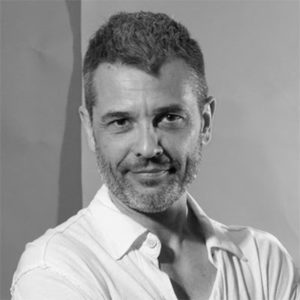
Professor Umberto Ansaldo is Head of School of Media, Creative Arts and Social Inquiry at Curtin University, reporting to the Provost. He was previously the Head of the School of Literature, Art and Media at the University of Sydney, and the Head of the School of Humanities at the University of Hong Kong.
Professor Ansaldo’s disciplinary roots are in linguistics – most specifically in the study of language contact, linguistic typology, and language documentation. He is the author of four books to date (with CUP, OUP, Routledge, and Stockholm University Press), has edited or co-edited a further 11 volumes and journal special collections, and has authored multiple journal articles and book chapters. His most recent output is the co-editorship of The Routledge Handbook of Pidgin and Creole Languages (Routledge, 2021).
At the University of Hong Kong (HKU), Professor Ansaldo led the Humanities Area of Inquiry on the Common Core Curriculum Committee in HKU’s major revision of its curriculum (2010-2013), a time when, along with the University of Melbourne, HKU was leading in reimagining undergraduate curricula. As Chair of Linguistics, he was instrumental in establishing the Department in the top ten programs in Linguistics (QS rankings), and number one in Hong Kong. He also sat on HKU’s Senate and HKU’s Campus Development & Planning Committee. In the latter role, he was involved in the completion of the new Humanities Tower at the Centennial Campus, and the physical relocation of the Faculty from the Main Building.
At the University of Sydney, Professor Ansaldo sat on the University Executive Research Committee and led his School through a transformative period in terms of curriculum innovation and research engagement. He was in charge of overseeing the incorporation of the Sydney College of the Arts into the Faculty of Arts & Social Sciences. This included integrating existing and developing new curricula, forging research synergies, and leading the renovation of a purpose-built facility, with associated financial, technical, and HR responsibilities. He also piloted the first three micro-credit units in the Faculty.
Professor Ansaldo has throughout his career secured competitive research grants and leveraged industry funding for the advancement of the humanities and social sciences. One of his proudest achievements was his role in securing financial support to develop and host an exhibition on language and the brain, the “Talking Brains” exhibition that launched successfully at the CosmoCaixa in 2017. This type of engagement and championing of the Humanities is what Umberto is most passionate about.
Umberto lived and worked in Sweden, The Netherlands, Singapore, and Hong Kong, before moving to Australia. He speaks seven languages including Mandarin – he is well-acquainted with Asia and has conducted fieldwork in Muslim communities of the Indian Ocean, and has strong international networks in Southeast Asia, Japan, and Europe. One of the factors that attracted him to Curtin is the University’s Global Vision, which he believes is the future path of higher education and research.
Yasue Arimitsu
Doshisha University, Japan
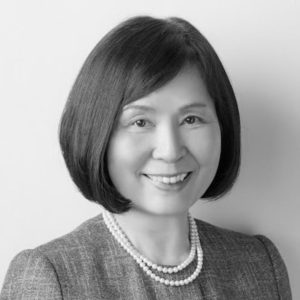
Yasue Arimitsu is Professor Emeritus at Doshisha University in Kyoto, Japan. She taught English and Australian Literature at Tezukayama Gakuin University in Osaka (1988–1995), at Doshisha University in Kyoto (1995–2014), and at Otsuma Women’s University in Tokyo (2017–2019). She translated a number of Australian and New Zealand short stories into Japanese, which appeared as Diamond Dog: A Collection of Contemporary Australian Short Stories (Gendai Kikakshitsu Publishers, 2008). She is currently working on the “Ten-Year-Project” of translating contemporary Australian novels. Until now, six novels have been published and ten novels will be published in total. Besides translations, Professor Arimitsu authored Australian Identity: Struggle and Transformation in Australian Literature (Tokyo UP, 2003), which was awarded the Australia-Japan Foundation Sir Neil Currie Special Prize, and co-edited Contemporary Australian Studies: Literature, History, Film and Media Studies in a Globalizing Age (Tōkyō Otowa-Shobo Tsurumi-Shoten, 2017). She was the President of the Australian Studies Association of Japan (2010–2013), and the President of the Australia New Zealand Literary Society of Japan (2014–2018).
Darlene Machell Espena
Singapore Management University (SMU), Singapore
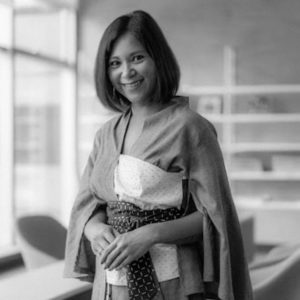
Darlene Machell Espena is an Assistant Professor of Humanities at Singapore Management University (SMU), where she has taught courses on International Relations on Film, Film in Southeast Asia, Cultural History of the Cold War in Asia, and Big Questions. She earned her PhD in History (2017) and MSc in Asian Studies (2012) from Nanyang Technological University (NTU), Singapore. Her research includes cinema, dance, and politics in postcolonial Southeast Asia, cultural history of the Cold War in Southeast Asia, and cultural discourses on education in Singapore. Before joining SMU in August 2018, she was a Research Fellow at Singapore’s National Institute of Education (NIE). She has held teaching positions at De La Salle University and Ateneo de Manila University in the Philippines. Her current book project is entitled “Heralding the Nation: Cinema and Politics in Postcolonial Southeast Asia, 1945-1967”.
Lorna Piatti-Farnell
Auckland University of Technology, New Zealand
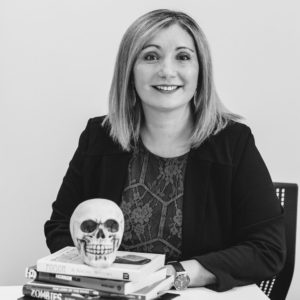
Lorna Piatti-Farnell is Professor of Film and Popular Culture at Auckland University of Technology where she is also the Director of the Popular Culture Research Centre. Prior to her move to New Zealand in 2010, she held appointments at De Montfort and Bishop Grosseteste universities in the UK. She is the Founder and President of the Gothic Association of New Zealand and Australia (GANZA). She holds an international reputation for leadership in the intersecting fields of Gothic Studies, Food Cultures, Popular Media, and Cultural History, and is known for her successful interdisciplinary collaborations. Her current and forthcoming work examines the connections between popular media and cultural identities, including the multi-faceted socio-historical representation of popular icons, social media participation and digital identities, and the meaning of Gothic horror in times of crisis. She has published widely in her areas of expertise, including Gothic Afterlives: Reincarnations of Horror in Film and Popular Media (Rowman & Littlefield, 2019), Consuming Gothic: Food and Horror in Film (Palgrave 2017), and The Vampire in Contemporary Popular Literature (Routledge, 2014). She is currently completing her latest monograph, entitled Poison: A Cultural History of the Mortal Arts (Reaktion, forthcoming 2021).
Gerard Goggin
Nanyang Technological University, Singapore

Gerard Goggin is the Wee Kim Wee Chair in Communication Studies at Nanyang Technological University, Singapore. Goggin is an internationally renowned scholar in communication, cultural, and media studies, whose pioneering research on the cultural and social dynamics of digital technology has been widely influential.
He has made benchmark contributions to the understanding of mobile communication, international Internets and their histories, with key books such as Cell Phone Culture (2006), Global Mobile Media (2011), Routledge Companion to Mobile Media (2014), Routledge Companion to Global Internet Histories (2017) and Location Technology in International Contexts (2020). Goggin is also a world-leading researcher in the area of accessibility, digital technology, justice, and rights, especially relating to the cutting-edge area of disability. In this area, he has published a number of collaborative authored and edited books including Digital Disability (2003), Disability in Australia (2005), Disability and the Media (2015), Normality & Disability (2018), and the Routledge Companion to Disability and Media (2020).
Professor Goggin has had a longstanding engagement in communications, technology, and social policy, and was a founding board member of the Australian Communications Consumer Action Network (ACCAN). In 2018 he was the Chair of the Humanities and Creative Arts Panel of the inaugural Australian Research Council Engagement & Impact assessment.
In recognition of his contributions to the study of communication, Professor Goggin was made a Fellow of the Australian Academy of Humanities, and a Fellow of the International Communication Association. Currently he serves as Secretary-General of the International Association for Media and Communication Research (IAMCR).
